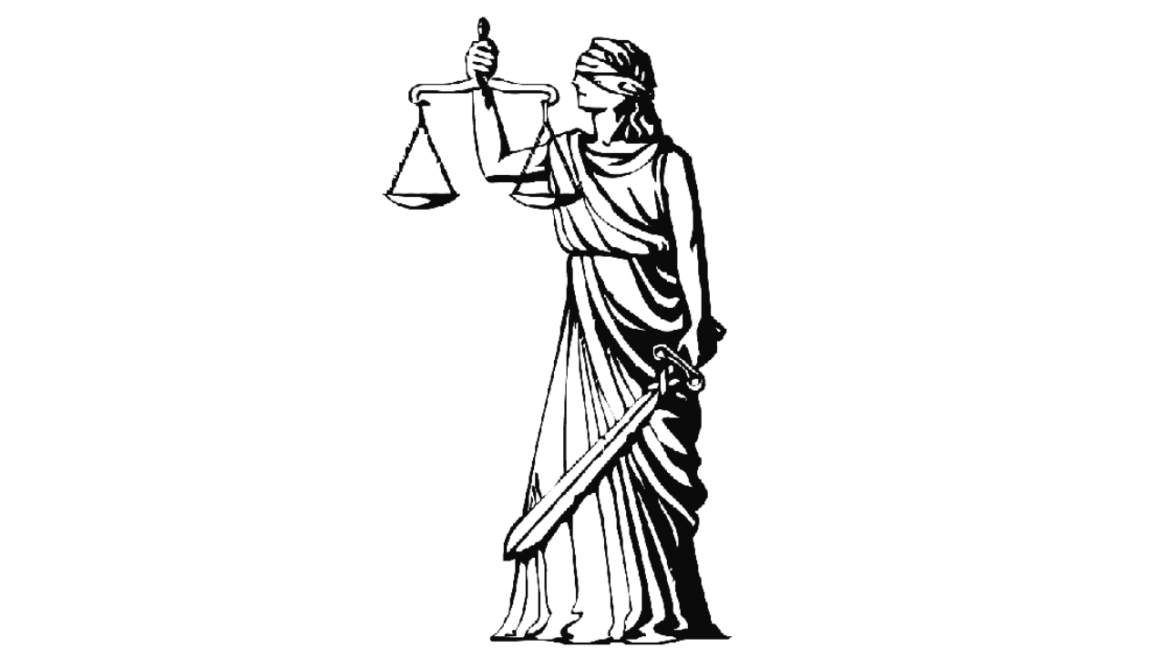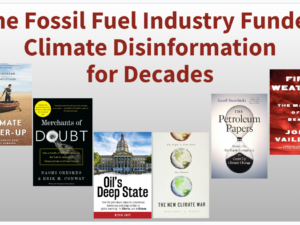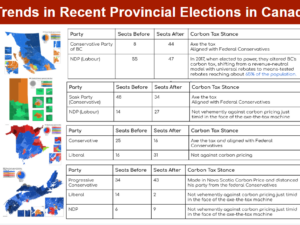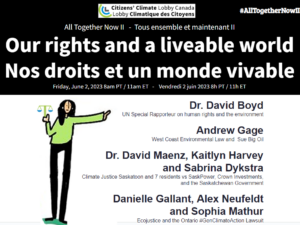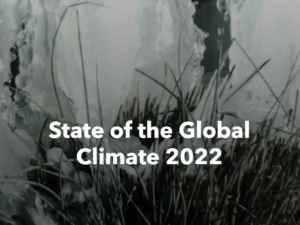On July 28, 2022 the UN General Assembly declared (1) access to a clean and healthy environment a universal human right. Failure of the state to take appropriate action to protect the climate system from GHG emissions including through fossil fuel production, fossil fuel consumption, the granting of fossil fuel exploration licenses, or the provision of fossil fuel subsidies may constitute an internationally wrongful act which is attributable to that state The opinion is non-binding, and also not enforceable but experts say it could influence the outcome of climate change court cases around the world. (2) Here is an interesting statistic: A quarter of Americans now live in cities and states taking the oil companies to court over lying to the public (7 ) akin to what happened to tobacco companies. Sue Big Oil (suebigoil.ca) is the go-to organization for British Columbian municipalities to sue big oil for the damage done. There are thousands of climate lawsuits globally. Here are two organizations tracking their progress databases References: 2) World Court says countries are legally obligated to curb emissions, protect climate (July 2025) | The United Nations | https://news.un.org/en/story/2025/07/1165475 4) La Rose v. Her Majesty the Queen (2019) | Climate Litigation Database | https://www.climatecasechart.com/document/la-rose-v-her-majesty-the-queen_7e6f 5) Court Action ‒ Saskatchewan Climate Change Litigation | Saskatchewan Coalition for Sustainable Development | https://www.sustainablesask.ca/court-action.html 6) Saskatchewan legal action on coal power | Citizens for Public Justice | https://cpj.ca/saskatchewan-legal-action/ 7) Big Oil faces a flood of climate lawsuits — and they’re moving closer to trial (March 2024) | Grist | https://grist.org/accountability/big-oil-climate-lawsuits-trials-attribution-science-exxon/ On September 16, 2025 a group of activists, who range in age from seven to 25, include plaintiffs who won landmark climate case in Montana two years ago (see below) argued that a federal judge should block three of Donald Trump’s pro-fossil fuel executive orders. The hearing, which follows the filing of litigation in May, will mark the first time a federal court hears live testimony in a youth-led constitutional climate case. Carrboro, North Carolina launched its case against Duke Energy on Dec. 3, 2024 when the town council unanimously voted to authorize a lawsuit against its local electricity provider. The Orange County town of 21,000 positioned itself as a property owner facing millions of dollars in climate change costs, including road repairs, stormwater infrastructure protection, and the cooling of public buildings. The trial began September 25, 2025. On April 9, 2024, thousands of elderly Swiss women joined forces in a groundbreaking case heard at the European Court of Human Rights, arguing that their government’s “woefully inadequate” efforts to fight global warming violate their human rights and prevailed! In Montana, in May 2023 the governor signed a bill banning the state from considering climate impacts when analyzing large projects such as coal mines and power plants, sixteen young people with Our Children’s Trust took the state government to court and won. In May 2023, Hoboken, New Jersey became the first state-level lawsuit filed under racketeering laws. On September 16. 2023 California, the fifth-largest economy in the world, filed a sweeping climate lawsuit against ExxonMobil, Shell, BP, ConocoPhillips, and Chevron, as well as the domestic oil industry’s biggest lobby, the American Petroleum Institute for more than 50 years of deception, cover-up, and damage, climate leaders across the country have shared their support. On March 29, 2023 the UN backed landmark Pacific-led resolution clearing the way for the International Court of Justice (ICJ) advisory opinion on climate obligations. Through the resolution, world leaders asked the ICJ to form an advisory opinion clarifying international legal consensus on climate change’s impacts on human rights and the rights of future generations. The opinion will be non-binding, and also not enforceable but experts say it could influence the outcome of climate change court cases around the world. On December 9, 2019 the national Commission on Human Rights of the Philippines announced the findings and recommendations from its path-breaking four-year inquiry into the human rights impacts of climate change in the Philippines and the contribution of 47 Carbon Major companies to those impacts. The Commission found that climate change constitutes an emergency situation that demands urgent action. The Commission further concluded that Carbon Major companies played a clear role in anthropogenic climate change and its attendant impacts. The Commission found that, based on the evidence, Carbon Major companies could be found legally and morally liable for human rights violations arising from climate change. On December 20, 2019, the Dutch Supreme Court, the highest court in the Netherlands, upheld the previous decisions in the Urgenda Climate Case, finding that the Dutch government has obligations to urgently and significantly reduce emissions in line with its human rights obligations. A truly historic outcome! In Mexico, young people have led several important court cases challenging the slow pace of the country’s clean energy system. The supreme court is due to decide whether they are allowed to seek justice in at least one case.Laser Talk: Our rights and a liveable world
In July 2025, the International Court of Justice landmark delivered the following opinion:
.– International Court of Justice, July 2025
In Canada, there are currently four climate lawsuits invoking Sections of the Canadian Charter of Rights and Freedoms to hold governments accountable for climate inaction. These cases are led by youth, community groups, and environmental organizations:
Youth plaintiffs are suing the Ontario government for weakening its climate targets, arguing violations of Charter rights. The case is led by Ecojustice. It returns to the Ontario Superior Court on December 2–3, 2024.
Fifteen youth plaintiffs are suing the federal government for failing to act on climate change. Initially struck, but in January 2024 the Federal Court of Appeal revived the case.
Climate Justice Saskatoon and seven residents filed a Section 7 Charter challenge against SaskPower, Crown Investments, and the Saskatchewan government, alleging rights violations due to inadequate climate action. The trial took place in April 2024. Outcome pending.
Citizens for Public Justice, Saskatchewan Environmental Society, and three individuals (including a youth) seek judicial review of Saskatchewan’s decision to extend coal plants beyond 2030. They argue it’s unreasonable and harmful to Canadians’ rights.
https://www.lse.ac.uk/granthaminstitute/publication/global-trends-in-climate-change-litigation-2025-snapshot/
https://www.climatecasechart.com/
1) UN General Assembly declares access to clean and healthy environment a universal human right (July 2022) | The United Nations | https://news.un.org/en/story/2022/07/1123482#
3) Mathur et. al. is a pioneering youth-led climate lawsuit | Ecojustice | https://www.ciel.org/news/groundbreaking-inquiry-in-philippines-links-carbon-majors-to-human-rights-impacts-of-climate-change-calls-for-greater-accountability/
ICYMI – Landmark climate cases globally
In the U.S. in April 2023 a US Supreme Court decision unleashed a wave of lawsuits against the fossil fuel industry that had been stuck in legal limbo for the last five years. Some California cities and counties are suing oil, gas, and coal companies after revelations that ExxonMobil had known since at least 1977 about the catastrophic effect of burning fossil fuels but worked to publicly cast doubt on the science.
Laser Talk: Our Rights and Liveable World
Home » CCL Canada News » Laser Talk: Our Rights and Liveable World


